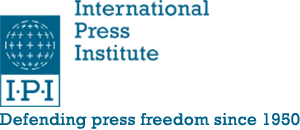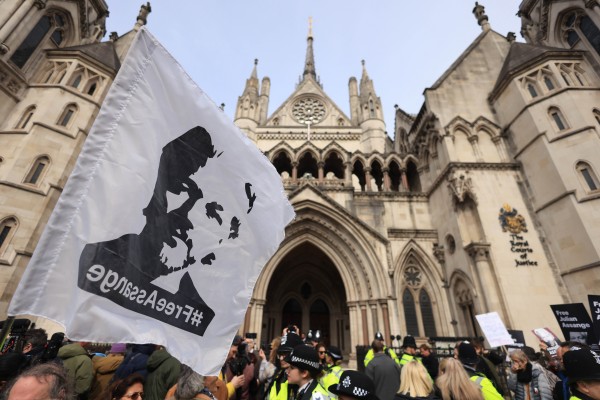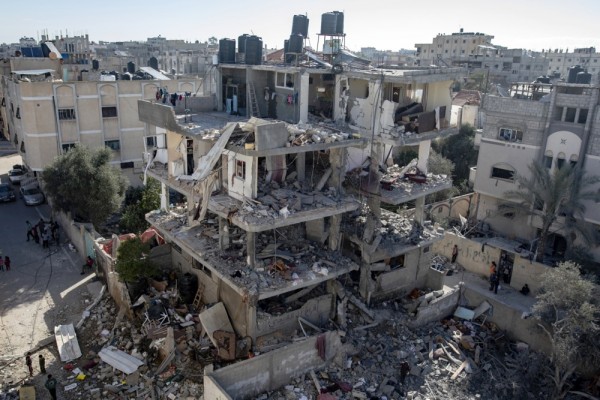Slovenia’s Government Communication Office (UKOM) must stop denying public health officials and ministers clearance to give interviews with media and halt wider attempts to control news coverage during the pandemic, the International Press Institute (IPI) said today.
IPI, a global network of editors, media executives and leading journalists for press freedom, also urged UKOM to ensure that journalists from all media outlets were given adequate opportunity to question ministers at online government press conferences.
On February 3, 2021, Slovenia’s public broadcaster, RTV Slovenija, reported that Bojana Beović, head of the advisory group at the Ministry of Health, was denied permission to appear on its late-night news show Odmevi to comment on false positive results in rapid antigen tests.
RTVSLO reported that in response to emailed interview requests, it received a message saying that UKOM Director Uroš Urbanija had “forbidden” officials from providing answers to media or giving interviews.
It was later reported that Education Minister Simona Kustec, Milan Krek, director of the National Institute of Public Health, and other health officials were also refused permission to appear on commercial television station Kanal A to give interviews on the testing system.
UKOM’s policy was condemned by both the Slovenian Union of Journalists (SNS) and the Slovene Association of Journalists (DNS) as an act of censorship, though the government body has rejected the criticism.
“During the COVID-19 pandemic, the Slovenian government has a heightened responsibility to ensure that the public has access to timely and up-to-date sources of news from a range of sources”, IPI Deputy Director Scott Griffen said. “Blocking health experts and ministers from appearing on the country’s public broadcaster and other media runs completely parallel to this responsibility.
He added: “UKOM must immediately reconsider this policy and ensure government representatives are not barred from communicating with the media. Unfortunately, this appears to be yet another example of the efforts by the current administration to undermine and undercut public trust in the work of media and journalists whose reporting is challenging or critical of the government.”
SNS denounced UKOM’s interview policy and said that by “limiting cooperation of representatives of the government and various public institutions with certain journalists and media”, the government body was “trying to control content in the media and avoid reporting on different opinions and criticism of the government’s work”.
DNS said UKOM could not tailor media content, adding: “Centralised government communication, censorship of own functionaries and restricting journalists’ access to information are the features of autocratic and undemocratic systems which do not respect freedom of speech”.
Griffen also urged UKOM to allow journalists full access to information at online government press conferences. In recent weeks, DNS has received reports that journalists from certain publications were being overlooked and discriminated against because of the outlet they represent during rounds of questions from the press.
The Slovenian Press Agency, which has been in the crosshairs of the government in the last few months, has been unable to ask questions on several occasions during press conferences with the prime minister. Journalists from other media outlets have been repeatedly overlooked or ignored when trying to ask questions, according to reports.
“Blacklisting or discrimination against journalists from certain outlets during press conferences seriously undermines the freedom of the press to exercise its right to gather information, seek responses from officials and hold power to account”, Griffen said.
UKOM has denied the allegations of censorship in its policy on interviews, saying it was “coordinating” appearances by government officials and representatives of the COVID-19 advisory group, who answer journalists’ questions at daily government press briefings.
In a letter to IPI after publication of this article, UKOM again rejected any suggestion that it had engaged in censorship and emphasized that it “supports the free activity of the media and does not obstruct the media in the gathering of information.”
UKOM director Urbanija, a key ally of prime minister Janez Janša, has come under criticism in recent months for suspending financing for the country’s press agency and urging citizens to take to social media to publicly denounce media “manipulators”.
This statement by IPI is part of the Media Freedom Rapid Response (MFRR), a Europe-wide mechanism which tracks, monitors and responds to violations of press and media freedom in EU Member States and Candidate Countries.



